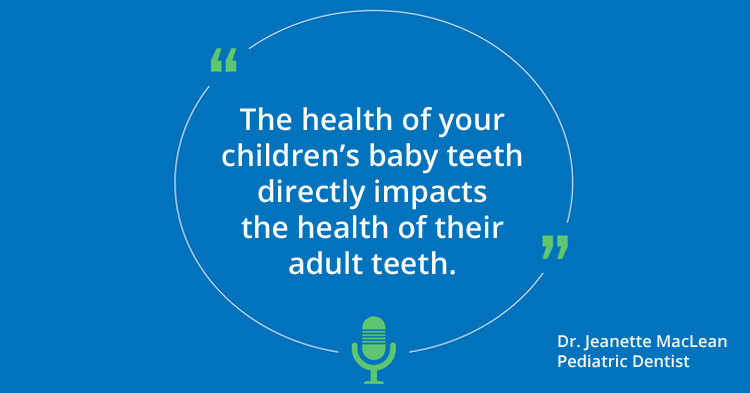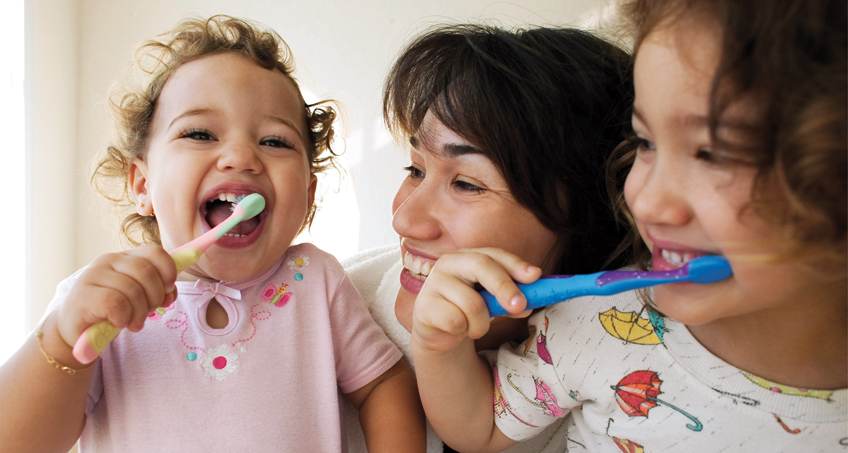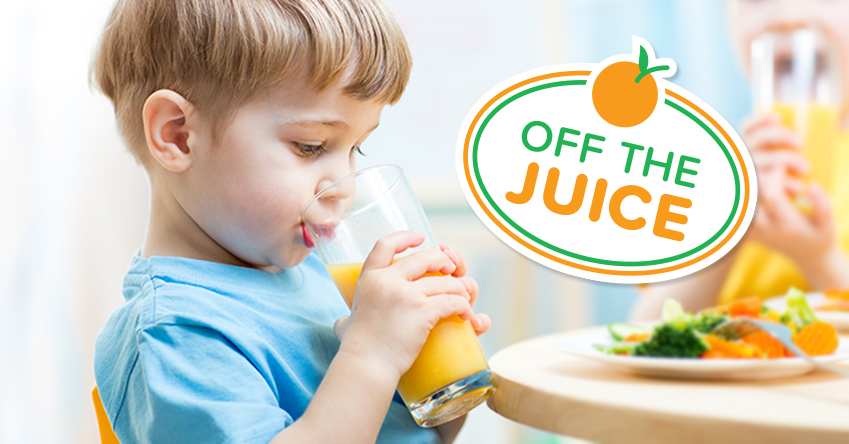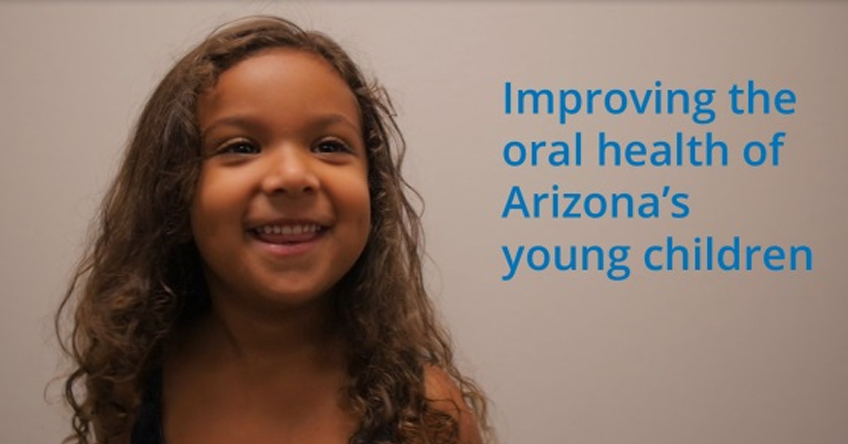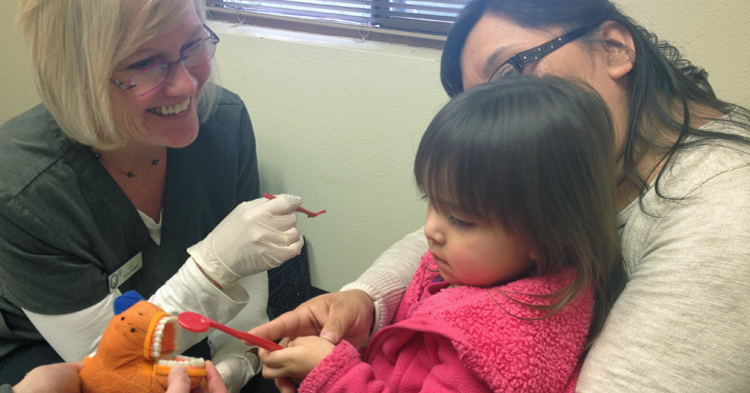
Almost a decade ago, First Things First Navajo/Apache Regional Director Kate Dobler-Allen found herself reviewing data that said a large number young kids in her region were being identified with baby bottle tooth decay.
The Navajo/Apache region has a particularly high percentage of kindergarten children with untreated tooth decay, more than double the Arizona average of 27 percent, according to a recent state oral health report.
About the same time, she met Connie Baine, a dental hygienist in the area who was working to improve access to preventive oral health services in rural parts of Arizona. Good oral health in young children plays a critical role in a child’s overall wellbeing and education.
The two teamed up to start identifying partners to create an oral health system in the Navajo and Apache counties area.
“The question was, ‘How can we align partners and resources to change oral health behavior and create connections?'” Dobler-Allen said. “We began to convene a regular oral health coalition meeting.”
Finding Solutions
The first few meetings involved brainstorming ideas on where the coalition could have an impact. There was training around understanding the dental health care plans and actually finding providers to work with kids under 5 years old.
“We had data that said the oral health statistics for young kids were poor. The data also told us there was no dentist available in the area able to treat them,” Dobler-Allen said. “It becomes a huge burden for families to travel two to three hours one way to Phoenix, Flagstaff or Tucson for your child to see a dentist.”
Baine reached out to the pediatric dentists she knew outside of the area. Eventually, the coalition started teledentistry work, where a local dental hygienist completes an in-person screening and application of fluoride varnish for the child.
If the hygienist sees signs of disease and infection, X-rays and digital images of the teeth are taken and images are transmitted digitally to a pediatric dentist out of town for a complete diagnosis. The patient is then referred for an in-person follow-up appointment with that dentist. This type of work has allowed for more young kids to be treated earlier for oral health problems.
Coalition conversations also center around the rural Arizona environment, food deserts and the impact to oral health.
“If you don’t have clean running water, what does that mean for oral hygiene? These are basic realities that our families and communities find themselves in,” Dobler-Allen said. “Everybody needs to remain aware of the realities, no electricity, no fresh water and a family’s ability to get fresh vegetables once a month.”
Spreading the Word
Talking to parents about prevention became a big part of the effort.
“We wanted parents to know the importance of giving their babies water in their bottle, instead of juice,” Dobler-Allen said. “A large part of preventing baby bottle tooth decay is not putting babies to sleep with carbs such as juice in the bottle.”
Over time, more and more partners joined efforts. The Lion’s Club in the area began a children’s oral health and literacy program. Members now have a traveling road show where they visit child care programs, libraries, WIC clinics and community events to talk to young kids about the importance of brushing and taking care of their teeth, by also reading age appropriate books to the kids.
Working Together
For FTF, the work of the coalition has allowed the regional council to provide more resources for young children in the area, Dobler-Allen said. FTF has funded an oral health strategy for the past eight years, which means children under 5 are eligible for an oral health screening, fluoride varnishes and oral health education to the participating parents and caregivers.
“The coalition has provided the place to have the conversation to pull partners together, share research and best practice and be able to align with the department of health and with Indian Health Services,” Dobler-Allen said. “It all helps us inform, leverage and coordinate those conversations to make a difference in the lives of our kids.”
Ofelia Gonzalez is public information officer for First Things First. You can reach her at ogonzalez@firstthingsfirst.org


